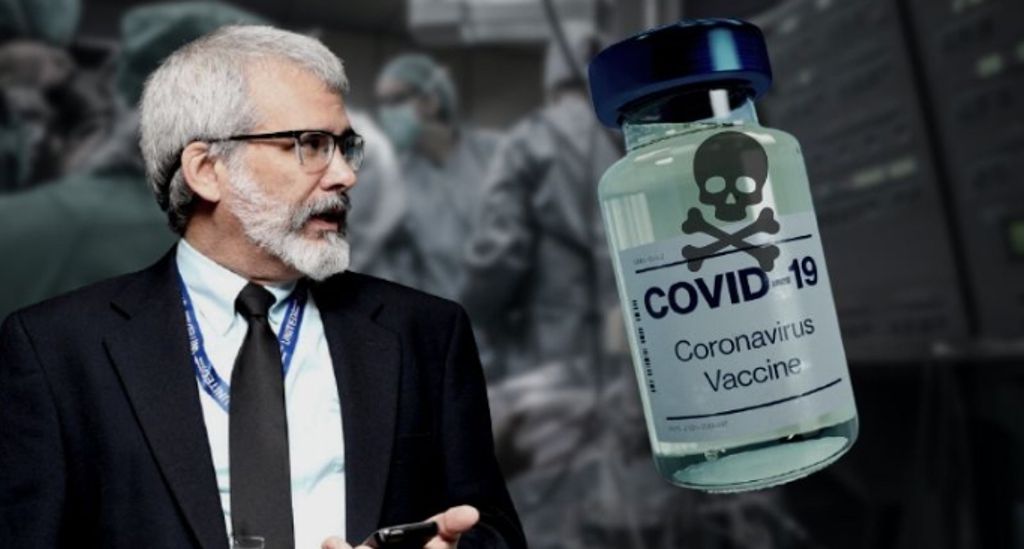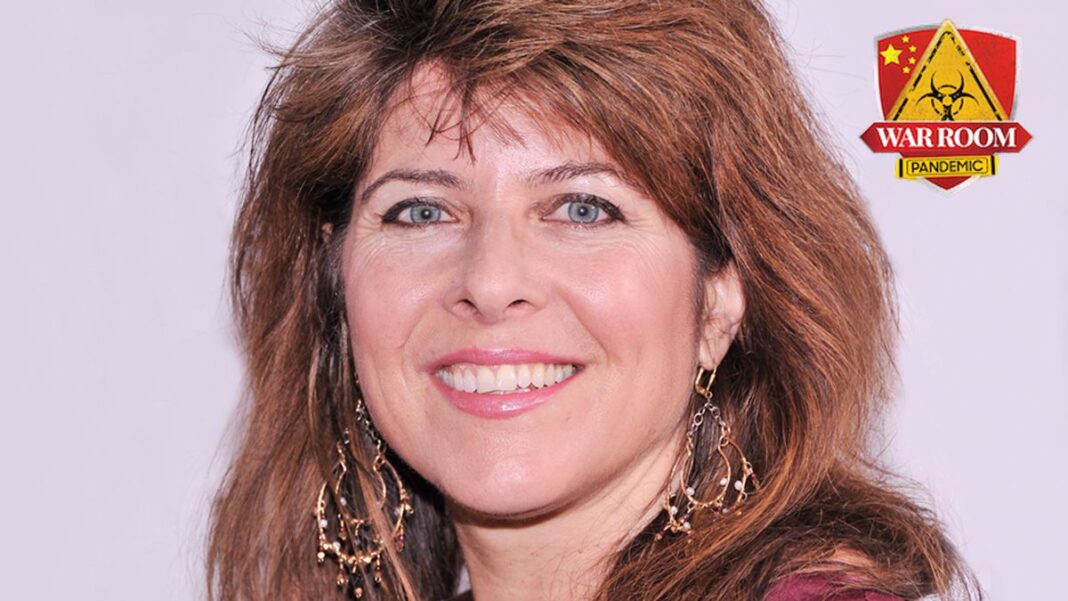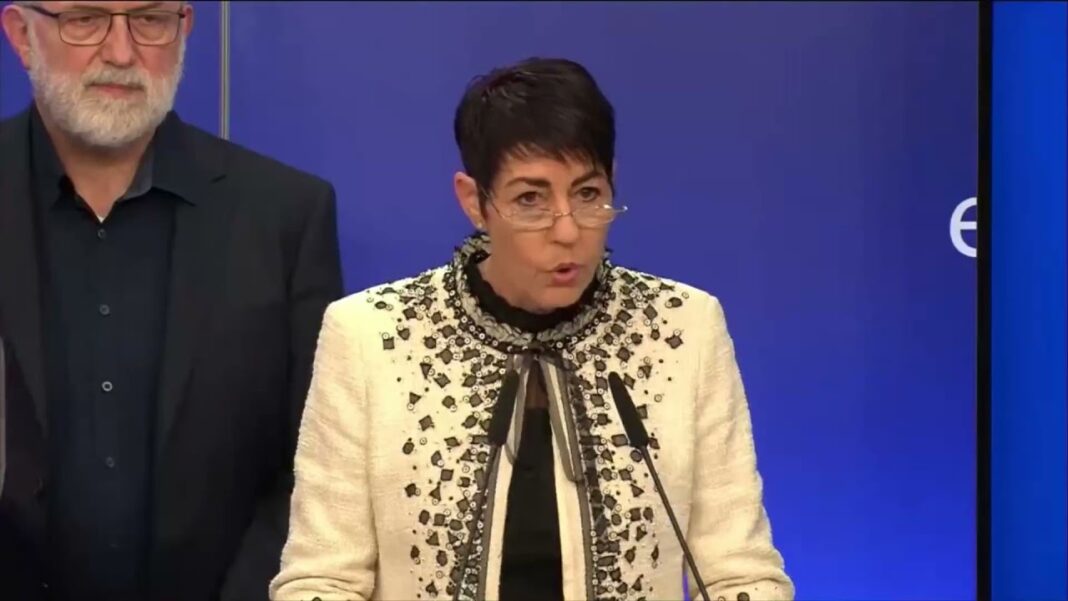This is the third and final part of my interview with Dr. Robert Malone, one of the first scientists in the world to publish a paper on the possibility of mRNA genetic technology to have vaccine potential. Part I was originally published in the European Conservative, and Part II in American Greatness. The interview took place around the International COVID Summit, when Dr. Malone was still widely considered a contender for the 2021 Nobel Prize for Medicine.
Dr. Malone, one of the costs of singing outside the chorus is the risk of being negatively reviewed by the critics — if not by the prime donne. And you were in fact deplatformed from LinkedIn for example. What was that like?
Dr. Malone: That’s an interesting story. They did do that, and then they looked at the actual statements that I’d made.
The vice president of LinkedIn wrote me an apology letter and reinstated me, and explicitly said that LinkedIn didn’t have the skill set to censor me — to evaluate my statements and the nuances in my statements.
It’s odd that nonscientists should sit as a court, I mean to do the full judge, jury and prosecution over actual scientists — weighing the acceptability of dissenting scientists’ non-orthodoxy from whichever infallibly declared dogma.
Dr. Malone: I think this is a great credit to LinkedIn — as opposed to Facebook and many of the other platforms — that they would acknowledge that in fact, they don’t have physician-scientists with 12 years of postdoctoral training making these decisions.
Were there any consequences for your co-conspirators in the now-famous podcast with Dr. Bret Weinstein and Steve Kirsch that catapulted you to worldwide attention?
Dr. Malone: In our case, Steve [the inventor of the laser mouse for computing] was risking his position and his status — and in fact his company. His board of directors subsequently insisted that he step down as CEO of the company that he created because of “fact-checker” statements made about him.
I myself was risking any theoretical possibility of being considered by the Nobel committee, and I have no idea what’s going to take place.
We all went into that podcast knowing we were risking something significant and that the moral obligation to disclose what we knew — and to speak freely and frankly — outweighed any personal risk.
We were very, very conscious of that. We were all nervous as cats on a hot tin roof as we went into that discussion. It’s part of the tension that exists among the three of us that people find so fascinating.
You told Tucker Carlson the public doesn’t have enough information to decide whether to get vaccinated. Who should make the choice, in principle, when it comes to vaccination — the individual or the government? What reflections do you have on the interplay between personal autonomy/responsibility and public safety?
Dr. Malone: So, as a physician, I believe strongly in the fundamentals that we’ve all agreed on since World War II in terms of bioethics, which is that the individual has autonomy and has the right to accept or reject medical procedures that would be performed on them.
I believe that it’s the role of the government to inform the public — not to require of the public.
In order to persuade the public, the government has to have some trust and it has to have clear disclosure of risks.
You said the individual has the right to decide what happens to their body, but you did say to Tucker Carlson that the public doesn’t have enough information to make the decision. I have to drill down on this — isn’t there a tension there between those two points?
Dr. Malone: So, if the tension exists, in my mind, what I was expressing to Tucker was that there has not been full disclosure of the range of risks that exist. What I’m expressing is that the public is not able to gain access to a full spectrum of information that’s known about the risks of the vaccine. That information is carefully controlled — and, many argue, has been managed in such a way to minimize any potential perception of risk, rather than taking a stance of open disclosure. So the public has to be fully aware of all the information.
In the case of what I was expressing to Tucker particularly, specifically, is that in the United States the Food & Drug Administration has believed, has intended, based on last fall’s communications, that they had a set of data-capture tools that would allow them to accurately assess risk associated with the vaccine. And what I shared with Tucker was that my colleagues in the FDA and myself and many others were well aware that those data-gathering tools the FDA had hoped would be sufficient were not sufficient.
Now we know — with the letter with which the FDA granted marketing authorization for the BioNTech commodity product — that the FDA explicitly states their data collection capabilities were not sufficient to assess and that there were adverse events associated with this vaccine.
So what I had said to Tucker back then that was considered heretical at the time was that we didn’t have the capabilities to assess rare risks of the vaccines, in part because the FDA had not required the vaccine manufacturers to do the rigorous studies and had relied on this passive information-gathering system. We did not have the capabilities to gather the necessary data to make a full and rigorous assessment of risk. And therefore, it was not possible to inform the public even if the FDA fully wished to.
What’s changed between what I said then — which was considered heresy — and now, is that the FDA has freely acknowledged in their public writing that I was correct. They do not have these tools, and that’s why we find ourselves in the States looking to Israel and the United Kingdom, in particular, for their data.
So, we’re in an odd situation in the States where there’s acknowledgment that our data systems are inadequate to assess the risks of the vaccine and that therefore the public is not able to be fully aware of those risks. We seek to rely on the Israeli and U.K. data but, to my eye, when it’s inconvenient, we say, “Well, we don’t have the data here in the States.” We play a game where we say there may be risks and issues that have been identified in the United Kingdom — for instance, the infection of the vaccinated — but we haven’t actually seen that data yet here in the States, and so we’re denying that it’s a real problem, even though we also simultaneously acknowledge that we actually haven’t set up the systems that would allow us to detect them.
Your argument to Tucker wasn’t therefore that people aren’t capable, in principle, of deciding?
Dr. Malone: Not at all. It’s the data. It’s that the information is not available. It’s not being made available, and it’s not being captured — because we have a failure to set up adequate systems.
Admiral Rachel Levine, Assistant Secretary for Health, U.S. Department of Health and Human Services, said, “We strongly encourage everyone age 12 and older who are eligible to receive the vaccine under Emergency Use Authorization to get vaccinated, as the benefits of vaccination far outweigh any harm.” When I was looking at that statement, “far outweigh any harm,” I thought of the Hippocratic Oath, which is “First, do no harm.” Is there a tension, do you think, between those two principles?
Dr. Malone: How can you deny that there’s a tension between those two principles?
Dr. Levine is an eminent public health official, and I respect her many contributions to public health. However, I disagree with her evaluation in this case. I strongly disagree that the benefits greatly outweigh the risks.
I believe the sum-total of the risks include the development of viral escape mutants and, as well as the potential harm to the individual, which I believe even she would need to acknowledge, that certainly the data demonstrate — and the FDA’s own statements demonstrate — that we do not fully understand the risks.
So to say the benefits outweigh the risks when we don’t completely understand the risks seems to be, in my mind, a logical non sequitur. It’s inconsistent with the data as I understand it.
Benjamin Harnwell is a cofounder and member of the board of directors of Patriot Party Italia, the first political party in the world explicitly inspired by the thought and philosophy of Stephen K. Bannon. He’s also international editor of Bannon’s No. 1 podcast WarRoom. Follow him on Twitter @ben_harnwell.
By BENJAMIN HARNWELL







